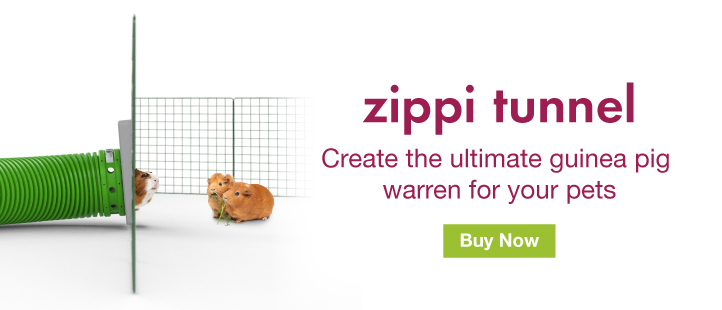If you want to let your guinea pigs be “free range” in your house, either on a permanent or a temporary basis, then here are some tips to help you properly prepare your room.
- Decide which areas you want your guinea pigs to inhabit
Although guinea pigs are quite clean animals and can be trained to go to the toilet in particular places, they’ll occasionally go to the toilet whenever they need to. You can set out a lot of newspaper to make clean up a lot easier, but either you (or if it’s your parents house, your parents) need to be ok with this before you let your guinea pigs loose. - Separate this ‘free-range’ area from the rest of the house
A door might not be enough – guinea pigs can move very quickly when they want to, and even if you’re careful coming in and out of the door then they can still squeeze past you like lightning. It’s a good idea to find something that you can use as a barrier to keep them in their free range zone. Thankfully this doesn’t need to be very high, as guinea pigs aren’t great climbers, so something just over a foot high is ideal. Whatever you choose, you’ll need to get your hands on something that doesn’t fall over. Guinea pigs will nudge it, put their paws on it, and may topple it, and if it lands on them then it could really hurt your pets. If you want to let your guinea pigs be “free range” in your house, either on a permanent or a temporary basis, then here are some tips to help you properly prepare your room.
- Make sure other pets can’t get into your free range zone
Although your cat, dog, or other pet probably has the best of intentions, guinea pigs are very fragile and can get hurt easily, even during what another animal would consider to be playtime. In the case of small children, it’s fine for them to go in as long as they’re properly supervised, and don’t chase the animals around.
- Make sure the area you’ve chosen is safe for your guinea pigs to roam around in
Keeping things off the floor is a good idea, as guinea pigs will always test things to see if they are edible, often with unsightly consequences for shoes, books, chair legs and other things they can get their teeth into. In a similar manner, they’ll often try to munch on plants that aren’t good for them. Guinea pigs can be quite intelligent but, like us, they don’t always know what could be poisonous, so it’s best to keep household plants out of reach. Another good idea is to remove any cables – lots of guinea pigs can’t resist them, which can be a big problem for both parties. It’s best to keep cables where your guinea pigs can’t happen upon them.
- Provide a place to hide
The area needs to have everything the guinea pigs need to be comfortable, and this includes a covered area to hide in. Something about a foot high is ideal – this is a great place for them to go when they feel a little uneasy, and it’s a great place for them to sleep. Line the base of it with a bit of newspaper and hay for them to snuggle into.
- Ensure they have food and water
A nice bowl of dry food and some fresh veg will do fine, and somewhere to pop their water bottle. We suggest putting this all on a bit of newspaper, as guinea pigs can sometimes be slightly messy eaters, and tomato juice all over your carpet isn’t something we imagine you’re very keen on.
- Your guinea pigs would also really appreciate something to keep them entertained
Although for the most part they’ll entertain each other (and they’ll always enjoy tucking into their food) they could find it great fun to have a little extra stimulation. Popular toys include newspaper tents, chew tunnels, and hideaways. Check out our guinea pig toy section for more ideas.

Guinea pigs love having a big area to roam around in







Comments
Guinea, 26 May 2020
The ideal temperature for a guinea pig is from 68-72 degrees Fahrenheit.
Madisyn, 24 March 2019
can guinea pigs be in rooms that are cold/hot.